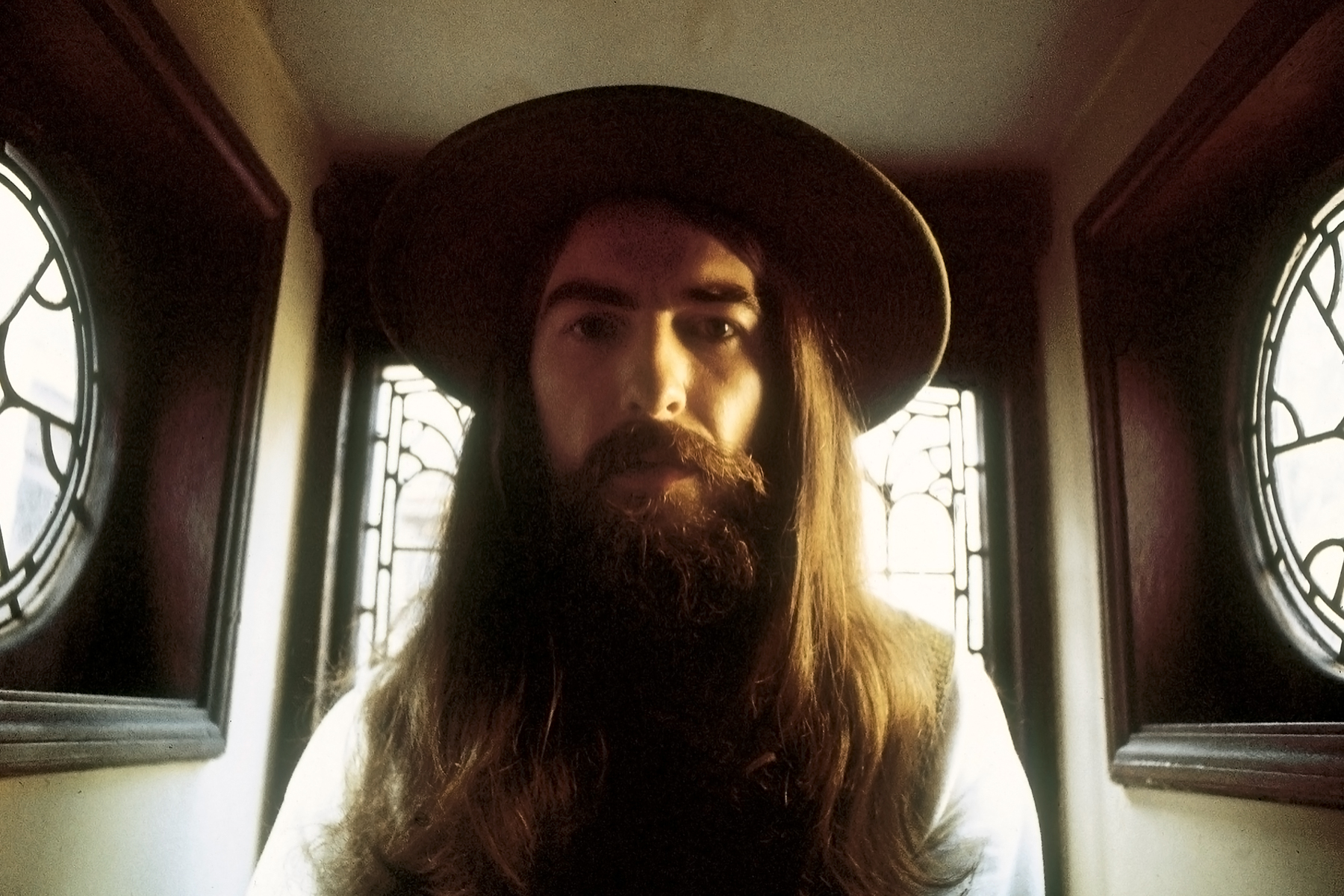Before he realized it, Voormann was rehearsing a bunch of unheard Harrison songs — one after another, 15 in all, including “What Is Life,” “Awaiting on You All,” and “My Sweet Lord.” “I had no idea how many songs he had,” Voormann says, still marveling.
That session was the start of what became All Things Must Pass, the momentous triple LP that instantly established Harrison as an artist in his own right months after the Beatles had incinerated.
But for its 50th anniversary year — which started last November — All Things Must Pass will receive its most lavish revisit to date.
Equally fascinating, the core All Things Must Pass has been subtly remixed — both to bring added sonic clarity to Spector’s lovingly dense and echo-heavy arrangements and to adhere to Harrison’s own wishes before his death in 2001.
Spearheaded by engineer Paul Hicks, who recently worked on a John Lennon box and the expanded edition of the Rolling Stones’ Goats Head Soup, the All Things tapes were enhanced by way of a higher-resolution transfer that wasn’t technically possible at the time of previous reissues.
There’s only a certain amount you can do with the limits of taste.” Of “Apple Scruffs,” the acoustic, Dylan-esque tribute to Beatle fans, Hicks says, “If you take out the delay, it sounds like a demo.” That song’s original mix, along with the slap echo on “Hear Me Lord,” were preserved.
Yet after a few go-rounds, the Harrison team found the right balance: In the new makeover, Harrison’s voice is often more upfront, and individual instruments are more easily heard in the musical stampede.
In addition to celebrating the album’s 50th anniversary, Dhani Harrison says one of the goals of tweaking the mix is to make the album more sonically friendly to a new generation.
“It was complete in his head before he even went in and got involved with Phil Spector,” says Dhani, who was born eight years after the record’s arrival.
Despite Spector’s reputation as a mercurial producer, Harrison had approved of his post-production work on the Beatles’ Let It Be and recruited Spector to oversee the album.
When Spector arrived from Los Angeles, work fully got underway.
He’d stop a musician and question what someone was playing: ‘You’ve changed the notes on the piano.’ But everyone respected him, and George had the final say.” Adds Voormann, “Everyone says Phil was crazy, but he wasn’t crazy at all.
Musicians regularly rotated: Voormann would sometimes find himself playing with drummer Jim Gordon, sometimes with Starr, other times with both Preston and Spooky Tooth keyboardist Gary Wright, both on keyboards.
“When we did ‘Wah-Wah,’ one of the first songs we recorded, I was knocked out,” he says.
For Harrison, who was still finding his voice, literally and figuratively, the process served to boost his self-confidence, especially after years of having some of his Beatles contributions rejected.
“George sounded in a great mood, and it sounds like it was a good and fun experience,” says Hicks of the tapes he heard.
It’s like John getting shot, all those crazy people all over the place.” Voormann recalls that Mal Evans, the Beatles’ trusted confidante, threw the loon out.
As the sessions dragged on for months, and Harrison fixated on countless guitar and vocal overdubs, Spector grew bored and unhappy, leading him to indulge in drinking; at one point, he fell, and Voormann recalls seeing the producer with a cast on his arm.
Spector’s departure would serve as an odd finale to Harrison’s ambitious undertaking.
But what they found were hours more of the jam sessions that would take place after Spector went home for the night — a small portion of which constituted the “Apple Jam” third LP of the initial release.
“We kept the flow of the original album.” Thanks to that pruning, the box includes what he calls a more “downtempo version, with a totally different vibe” of “Isn’t It a Pity” with pianist Nicky Hopkins, or the 36th take of “Run of the Mill,” sporting sprightly twin guitars.
“So we never asked.” Harrison and Hicks wound up mixing so many tracks — 110 — that Harrison hints at possible future releases as well, although he says he will adhere to a strict quality-control code.
In a way, Harrison’s ultimate test for the album’s success was the sob factor: He says the first time he played the remix of the opening song, “I’d Have You Anytime,” he lost it.
But in talking about the project, Dhani also has his lighthearted moments: One of the deluxe editions of the All Things Must Pass reissue includes a 96-page scrapbook as well as miniature figurine replicas of Harrison and the record’s iconic cover creatures.
